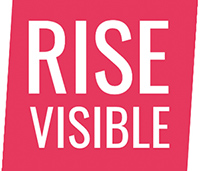As website developers, SEO experts, and digital marketers, we’ve witnessed the frustrating battle against spammy and low-quality content on search engines.
Despite our efforts to produce valuable and original content, we often find ourselves overshadowed by competitors who resort to shady tactics to boost their rankings.
However, there’s good news on the horizon. Google has just announced a core update aimed at tackling spam and elevating the quality of search results. Here’s what you need to know.
Businesses Struggling Against Spam and Low-Quality Content
There is a growing concern among businesses who feel they are losing the battle against spam and low-quality content.
Despite years of dedication to producing high-quality, helpful content and adhering to rules and guidelines on their website, many businesses are experiencing a decline in rankings and overall performance due to the overwhelming prevalence of spam.
This trend is particularly challenging for small businesses already facing tough economic conditions.
It’s imperative to highlight the urgency of addressing this issue to ensure a fair and equitable digital landscape for all businesses.
As well as it is often hard for business owners to to move up the rankings when their competitors are using Black Hat SEO strategies.
Google’s March 2024 Search Update: A Victory for Quality Content
Today, on March 5th, 2024, Google rolled out its highly anticipated Search Update, and it doesn’t disappoint.
This update targets spam and low-quality content, leveling the playing field for those who prioritize creating valuable content for users.
Focusing on Quality Content
Google’s commitment to improving search results is evident in its latest update. By enhancing its ranking systems, Google aims to surface the most helpful information while reducing unoriginal content in search results.
Elizabeth Tucker’s blog post provides insights into the top priorities of this update.
Emphasizing Content for People, Not Search Engines
In recent years, Google has been vocal about its shift towards favoring content created for people rather than search engines.
This means adhering to Google’s E-E-A-T formula—Expertise, Authoritativeness, Trustworthiness. The focus is on providing users with accurate and relevant information.
Crackdown on Spam
One of the key aspects of this update is the crackdown on spam. Google is tightening its spam policies to keep low-quality content out of search results.
From expired websites repurposed as spam repositories to obituary spam, Google is taking decisive action against spammy tactics.
Combatting AI-Generated Content
With the rise of AI, identifying low-quality automated content has become increasingly challenging.
Google acknowledges this and is intensifying efforts to differentiate between authentic content and AI-generated spam.
The goal is to ensure that search results prioritize quality content that genuinely serves users’ needs.
Protecting Site Reputation
High-quality websites with significant domain authority sometimes engage in the practice of posting low-quality content from third parties, often in exchange for payment. This strategy is commonly employed for search engine manipulation and offers little value to users.
Look at this example from Google to get a better understanding:
“For example, a third party might publish payday loan reviews on a trusted educational website to gain ranking benefits from the site.”
Effective May 5th, Google will implement a policy to identify and penalize such website owners as spammers, thereby reducing their visibility in search results.
We receive numerous emails (examples below) daily from individuals offering to link our blogs and website to other sites to enhance our backlink profile. It’s crucial to understand that backlink building must be conducted authentically and with a focus on quality. These emails are never legitimate.
What are backlinks?
Simply put, backlinks are links from other websites pointing back to your own. The quality and authenticity of these backlinks play a significant role in determining your site’s ranking.
For instance, if I have a backlink from Yahoo News to my website, it adds credibility and authority due to Yahoo’s high-ranking status and quality content. This, in turn, boosts my website’s reputation and authority.
However, don’t get caught up in pay-to-play and vanity based features like the company BrandFeature who says “Get “As Seen On NBC, CBS, ABC” & 100+ Sites”. These sites are glorified press release sites, not actually real press. So make sure when we you see “As Seen On” on a person’s website that they actually were interviewed or have a real story that was actually featured on one of these reputable channels.
Backlinking Strategies Under Scrutiny
Another area of focus for Google is backlinking strategies. Backlinks, links from other websites to yours, play a significant role in determining your site’s authority and reputation.
While quality backlinks from reputable sites can boost your website’s credibility, obtaining backlinks from spammy sites can have adverse effects.
Strategies to Avoid
Google advises against certain backlinking strategies that can harm your site’s reputation and search engine ranking.
These include tactics like purchasing backlinks or participating in link schemes. For more insight, refer to 5 Backlinking Strategies to Avoid.
Strengthening Policies for User Benefit
In summary, Google’s ongoing efforts to combat spammy and low-quality content reflect its commitment to providing users with the most relevant and reliable search results.
By enforcing stricter policies and penalizing abusive behaviors, Google aims to enhance the overall quality of the internet browsing experience for users worldwide.
For further understanding, explore Why Google E-A-T Matters for Your Website.










